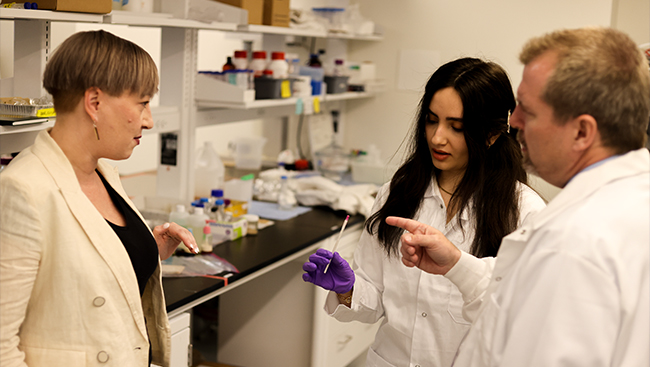VANCOUVER — The struggles of a gender-bending spirit servant in a Shakespearean classic offer unlikely but valuable insights into the experience of life as a modern-day trans person, argues a British Columbia scholar.
Mary Ann Saunders, an English professor at the University of British Columbia, said she was struck after watching Julie Taymor's 2010 Hollywood interpretation of Shakespeare's "The Tempest" by parallels between the antics of Ariel and her own experience as a trans woman.
In the play, the spirit Ariel, who is an indentured servant to the protagonist Prospero, is directed by his master on multiple occasions to take on the form of a woman.
Saunders described an academic article that referenced Ariel's female depictions, with male features and a woman's breasts, as a grotesque and impossible horror.
"I thought, 'Now wait a second. This body looks an awful lot like the bodies of a lot of trans women I know, and it looks an awful lot like my body, and our bodies are not grotesque and our bodies are not impossible,'" Saunders said in an interview.
As a supernatural being Ariel is portrayed as someone who never belongs, mirroring the trans experience, she added.
"Ariel is a trans figure who's always being excluded, but because of my own history I find a place of connection with her. So this analysis allowed me to see Ariel not as (an outsider) but similar to myself."
Saunders will present her theory alongside dozens of other leading trans scholars at this week's Moving Trans History Forward conference at the University of Victoria.

The school will host activists, academics, archivists, allies and artists to help preserve, explore and celebrate the history of trans and gender-non-conforming communities around the world.
UVic professor and renowned sex and gender expert Aaron Devor, who is also the world's first research chair in transgender studies, said he hopes the four-day event will spur research into both the past and present experience of trans people.
"It's important both to understand where we came from and also to have a look at where we're going," Devor said.
He defined a trans person as anyone who feels their body doesn't fit their gender.
He added that Canada has reached a tipping point where a "slim majority" has become knowledgeable and accepting towards trans people.
"This is a very positive development. ... There's a thirst for understanding and knowledge about what is the right thing to do to properly integrate trans people into society," he said.
"My hope for the future is that one day a person's gender identity and gender expression will simply be part of what that makes them unique and interesting, but not be the basis for stigma or discrimination."
Longtime Vancouver-based trans activist Jamie Lee Hamilton is part of a four-person panel at the conference, where she will discuss the historic and present-day overlap between the trans and sex-trade communities.
"We must remember the early pioneers, many of them adult-industry workers, and never forget them," she said during an interview.

"They led the movement and we should never forget about them."
The conference is scheduled to run until Sunday afternoon and will involve more than 150 people, mostly from the United States and Canada.





